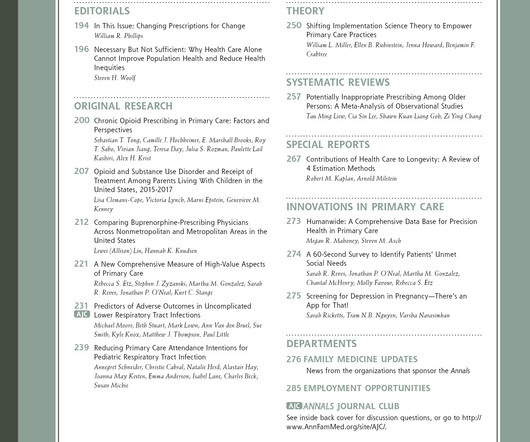Exploring Iron Deficiency in Alberta: Following up on Clinical Observations [Population health and epidemiology]
Annals of Family Medicine
NOVEMBER 20, 2024
Context: Iron deficiency (ID) is a common and preventable micronutrient deficiency, affecting cognitive development, immune function, and well-being of individuals, and leading to substantial health care costs. Population/Participants: Cohort of 94,264 individuals aged six and older residing in Alberta. 2020-2022).












Let's personalize your content